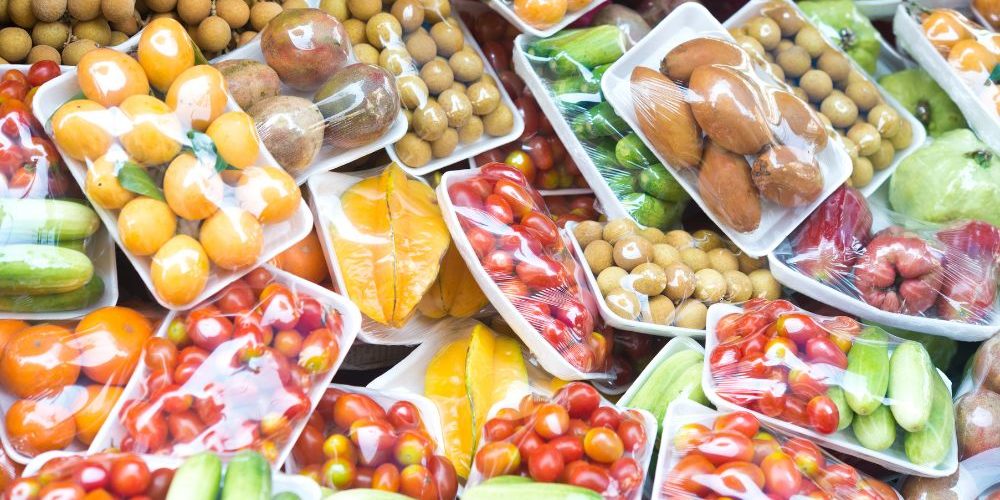
- Teacher: Andreas Apostolatos
- Teacher: Benedict Iorzer Labe



This course module aims to provide students with a comprehensive understanding of produce packaging techniques for effective postharvest management of agricultural crops. The course will cover topics such as packaging materials, design considerations, storage conditions, transportation, and quality control. Students will learn about the role of packaging in minimizing postharvest losses, maintaining product quality, and extending shelf life. Practical case studies and hands-on activities will be included to enhance students' problem-solving skills and critical thinking in the field of produce packaging.

This course module aims to provide students with a comprehensive understanding of produce packaging techniques for effective postharvest management of agricultural crops. The course will cover topics such as packaging materials, design considerations, storage conditions, transportation, and quality control. Students will learn about the role of packaging in minimizing postharvest losses, maintaining product quality, and extending shelf life. Practical case studies and hands-on activities will be included to enhance students' problem-solving skills and critical thinking in the field of produce packaging.

This course is designed for engineering and technology students conducting postgraduate research work on engineering and technology projects. The objective of the course is to translate current research methods, which are mostly from a social science perspective, into something more relatable and understandable to engineers and technologists.

This course addresses principles of produce packaging including packaging functions and requirements, types of packaging materials, modified atmosphere packaging, shelf life and safety among other relevant topics. The course is offered through a blended experience (face-to-face and online) involving theory, demonstrations and hands-on experiences along.
At the completion of the course participants will:
This course module aims to provide students with a comprehensive understanding of produce packaging techniques for effective postharvest management of agricultural crops. It will cover topics such as materials, design considerations, storage conditions, transportation, and quality control. Practical case studies and hands-on activities will be included to enhance problem-solving skills and critical thinking.
Upon completion of this course, students will be able to:
This course covers issues and methods of reseach in vocational and technical education.
ITE 311 introduces third-year Technology Education students to the theory and practice of teaching technical subjects at the secondary and vocational levels. As students who are themselves trained in a technical discipline, this course develops the pedagogical competencies needed to effectively communicate complex technical and psychomotor knowledge to learners. Topics include learning theories applicable to technical education, the major instructional methods used in workshop and laboratory settings, lesson planning, development of instructional materials, classroom and workshop management, and the use of ICT in blended technical instruction. The course culminates in a supervised micro-teaching exercise — one of the CCMAS-prescribed learning modes for Education graduates — providing students with their first formal teaching experience.

 This hybrid, practice-oriented course equips postgraduate teacher-trainees in Industrial Technology with the skills to design, conduct, and report rigorous educational research grounded in workshop and laboratory settings. At the end of the course, you will be prepared to:
This hybrid, practice-oriented course equips postgraduate teacher-trainees in Industrial Technology with the skills to design, conduct, and report rigorous educational research grounded in workshop and laboratory settings. At the end of the course, you will be prepared to:
formulate researchable problems and align them with appropriate quantitative, qualitative, or mixed-methods designs;
develop and pilot robust data-collection instruments (surveys, observation checklists, interview guides) and establish their validity and reliability;
perform descriptive and inferential statistics in SPSS and thematic coding with CAQDAS tools, interpreting outputs accurately; and
craft an APA-compliant mini-research report suitable for journal submission or TETFUND proposals.
Learning activities blend mini-lectures, hands-on analytics labs, peer critique workshops, and self-paced quizzes, with completion badges marking your progress. Assessments include an instrument validation portfolio, data-analysis tasks, and a capstone research report. Successful participants will leave with a ready-to-implement study and the confidence to mentor others in evidence-based practice within industrial-technology education.


Introduction and orientation to the field of metal. Basic technical information and laboratory work in metal processes and fabrication. This includes work in the areas of welding, forging, foundry, sheetmetal, and metal machining. A variety of projects will be made to demonstrate the different processes.